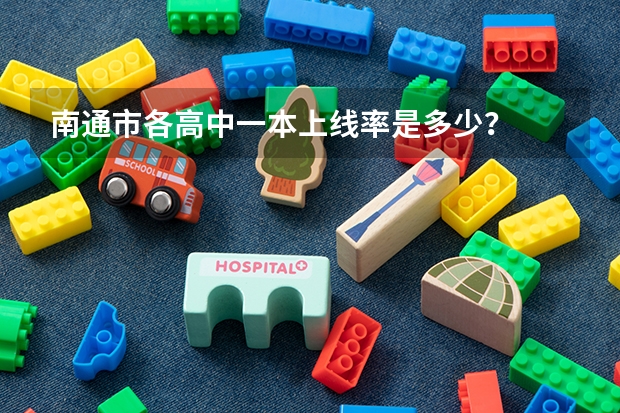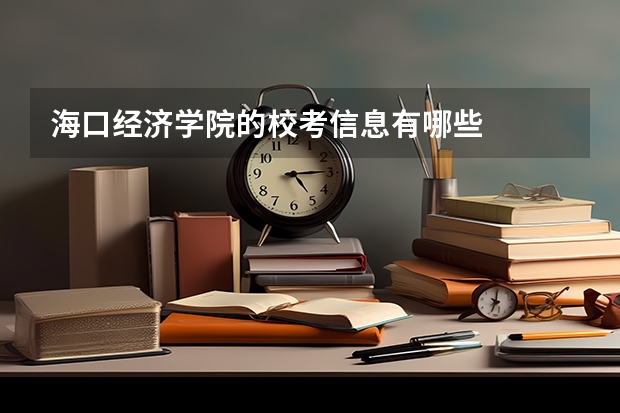孤儿高考可以加分吗
2025-01-12 19:52:34 | 19教育网
本文目录一览:

孤儿高考可以加分吗
不可以。
根据中华人民共和国《义务教育法》和《中华人民共和国基本公共文化服务标准》的规定,孤儿应当享受与独生子女相同的升学照顾待遇。具体表现为:
-
在义务教育阶段(小学、初中),孤儿可以享受与独生子女相同的入学优惠政策,如减免学杂费、优先录取等待遇。
-
在高中、中职阶段,孤儿可以享受与独生子女相同的招生入学政策,如加分政策等待遇。 19教育网
此外,各地还根据实际情况制定了一些针对孤儿的特殊教育扶助政策,如提供资金援助、提供心铅圆理辅让激橡导等。
需要注意的是,享受上述待遇需要孤儿的监护人或有关部门出示孤儿证明等相关材料,并按照当地教育行政部门的要求进行申请和审核。如果您所认识的孤儿需要相关帮助,可以咨询当地的教育行政部门、社会福利机构或专业律师等,以获取更准确的信息和帮助。

求《雾都孤儿》英文见解、评论等,尽量发表,好了加分
ThemesThemes are the fundamental and often universal ideas explored in a literary work.
The Failure of Charity
Much of the first part of Oliver Twist challenges the organizations of charity run by the church and the government in Dickens’s time. The system Dickens describes was put into place by the Poor Law of 1834, which stipulated that the poor could only receive government assistance if they moved into government workhouses. Residents of those workhouses were essentially inmates whose rights were severely curtailed by a host of onerous regulations. Labor was required, families were almost always separated, and rations of food and clothing were meager. The workhouses operated on the principle that poverty was the consequence of laziness and that the dreadful conditions in the workhouse would inspire the poor to better their own circumstances. Yet the economic dislocation of the Industrial Revolution made it impossible for many to do so, and the workhouses did not provide any means for social or economic betterment. Furthermore, as Dickens points out, the officials who ran the workhouses blatantly violated the values they preached to the poor. Dickens describes with great sarcasm the greed, laziness, and arrogance of charitable workers like Mr. Bumble and Mrs. Mann. In general, charitable institutions only reproduced the awful conditions in which the poor would live anyway. As Dickens puts it, the poor choose between “being starved by a gradual process in the house, or by a quick one out of it.”
The Folly of Individualism
With the rise of capitalism during the Industrial Revolution, individualism was very much in vogue as a philosophy. Victorian capitalists believed that society would run most smoothly if individuals looked out for their own interests. Ironically, the clearest pronunciation of this philosophy comes not from a legitimate businessman but from Fagin, who operates in the illicit businesses of theft and prostitution. He tells Noah Claypole that “a regard for number one holds us all together, and must do so, unless we would all go to pieces in company.” In other words, the group’s interests are best maintained if every individual looks out for “number one,” or himself. The folly of this philosophy is demonstrated at the end of the novel, when Nancy turns against Monks, Charley Bates turns against Sikes, and Monks turns against Mrs. Corney. Fagin’s unstable family, held together only by the self-interest of its members, is juxtaposed to the little society formed by Oliver, Brownlow, Rose Maylie, and their many friends. This second group is bound together not by concerns of self-interest but by “strong affection and humanity of heart,” the selfless devotion to each other that Dickens sees as the prerequisite for “perfect happiness.”
Purity in a Corrupt City
Throughout the novel, Dickens confronts the question of whether the terrible environments he depicts have the power to “blacken [the soul] and change its hue for ever.” By examining the fates of most of the characters, we can assume that his answer is that they do not. Certainly, characters like Sikes and Fagin seem to have sustained permanent damage to their moral sensibilities. Yet even Sikes has a conscience, which manifests itself in the apparition of Nancy’s eyes that haunts him after he murders her. Charley Bates maintains enough of a sense of decency to try to capture Sikes. Of course, Oliver is above any corruption, though the novel removes him from unhealthy environments relatively early in his life. Most telling of all is Nancy, who, though she considers herself “lost almost beyond redemption,” ends up making the ultimate sacrifice for a child she hardly knows. In contrast, Monks, perhaps the novel’s most inhuman villain, was brought up amid wealth and comfort.
The Countryside Idealized
All the injustices and privations suffered by the poor in Oliver Twist occur in cities—either the great city of London or the provincial city where Oliver is born. When the Maylies take Oliver to the countryside, he discovers a “new existence.” Dickens asserts that even people who have spent their entire lives in “close and noisy places” are likely, in the last moments of their lives, to find comfort in half--imagined memories “of sky, and hill and plain.” Moreover, country scenes have the potential to “purify our thoughts” and erase some of the vices that develop in the city. Hence, in the country, “the poor people [are] so neat and clean,” living a life that is free of the squalor that torments their urban counterparts. Oliver and his new family settle in a small village at the novel’s end, as if a happy ending would not be possible in the city. Dickens’s portrait of rural life in Oliver Twist is more approving yet far less realistic than his portrait of urban life. This fact does not contradict, but rather supports, the general estimation of Dickens as a great urban writer. It is precisely Dickens’s distance from the countryside that allows him to idealize it.
Motifs
Motifs are recurring structures, contrasts, or literary devices that can help to develop and inform the text’s major themes.
Disguised or Mistaken Identities
The plot of Oliver Twist revolves around the various false identities that other characters impose upon Oliver, often for the sake of advancing their own interests. Mr. Bumble and the other workhouse officials insist on portraying Oliver as something he is not—an ungrateful, immoral pauper. Monks does his best to conceal Oliver’s real identity so that Monks himself can claim Oliver’s rightful inheritance. Characters also disguise their own identities when it serves them well to do so. Nancy pretends to be Oliver’s middle-class sister in order to get him back to Fagin, while Monks changes his name and poses as a common criminal rather than the heir he really is. Scenes depicting the manipulation of clothing indicate how it plays an important part in the construction of various characters’ identities. Nancy dons new clothing to pass as a middle-class girl, and Fagin strips Oliver of all his upper-class credibility when he takes from him the suit of clothes purchased by Brownlow. The novel’s resolution revolves around the revelation of the real identities of Oliver, Rose, and Monks. Only when every character’s identity is known with certainty does the story achieve real closure.
Hidden Family Relationships
The revelation of Oliver’s familial ties is among the novel’s most unlikely plot turns: Oliver is related to Brownlow, who was married to his father’s sister; to Rose, who is his aunt; and to Monks, who is his half-brother. The coincidences involved in these facts are quite unbelievable and represent the novel’s rejection of realism in favor of fantasy. Oliver is at first believed to be an orphan without parents or relatives, a position that would, in that time and place, almost certainly seal his doom. Yet, by the end of the novel, it is revealed that he has more relatives than just about anyone else in the novel. This reversal of his fortunes strongly resembles the fulfillment of a naïve child’s wish. It also suggests the mystical binding power of family relationships. Brownlow and Rose take to Oliver immediately, even though he is implicated in an attempted robbery of Rose’s house, while Monks recognizes Oliver the instant he sees him on the street. The influence of blood ties, it seems, can be felt even before anyone knows those ties exist.
Surrogate Families
Before Oliver finds his real family, a number of individuals serve him as substitue parents, mostly with very limited success. Mrs. Mann and Mr. Bumble are surrogate parents, albeit horribly negligent ones, for the vast numbers of orphans under their care. Mr. Sowerberry and his wife, while far from ideal, are much more serviceable parent figures to Oliver, and one can even imagine that Oliver might have grown up to be a productive citizen under their care. Interestingly, it is the mention of his real mother that leads to Oliver’s voluntary abandonment of the Sowerberrys. The most provocative of the novel’s mock family structures is the unit formed by Fagin and his young charges. Fagin provides for and trains his wards nearly as well as a father might, and he inspires enough loyalty in them that they stick around even after they are grown. But these quasi-familial relationships are built primarily around exploitation and not out of true concern or selfless interest. Oddly enough, the only satisfactory surrogate parents Oliver finds are Brownlow and Rose, both of whom turn out to be actual relatives.
Oliver’s Face
Oliver’s face is singled out for special attention at multiple points in the novel. Mr. Sowerberry, Charley Bates, and Toby Crackit all comment on its particular appeal, and its resemblance to the portrait of Agnes Fleming provides the first clue to Oliver’s identity. The power of Oliver’s physiognomy, combined with the facts that Fagin is hideous and Rose is beautiful, suggests that in the world of the novel, external appearance usually gives a fair impression of a person’s inner character.
Symbols
Symbols are objects, characters, figures, or colors used to represent abstract ideas or concepts.
Characters’ Names
The names of characters represent personal qualities. Oliver Twist himself is the most obvious example. The name “Twist,” though given by accident, alludes to the outrageous reversals of fortune that he will experience. Rose Maylie’s name echoes her association with flowers and springtime, youth and beauty. Toby Crackit’s name is a lighthearted reference to his chosen profession of breaking into houses. Mr. Bumble’s name connotes his bumbling arrogance; Mrs. Mann’s, her lack of maternal instinct; and Mr. Grimwig’s, his superficial grimness that can be removed as easily as a wig.
Bull’s-eye
Bill Sikes’s dog, Bull’s-eye, has “faults of temper in common with his owner” and is a symbolic emblem of his owner’s character. The dog’s viciousness reflects and represents Sikes’s own animal-like brutality. After Sikes murders Nancy, Bull’s-eye comes to represent Sikes’s guilt. The dog leaves bloody footprints on the floor of the room where the murder is committed. Not long after, Sikes becomes desperate to get rid of the dog, convinced that the dog’s presence will give him away. Yet, just as Sikes cannot shake off his guilt, he cannot shake off Bull’s-eye, who arrives at the house of Sikes’s demise before Sikes himself does. Bull’s-eye’s name also conjures up the image of Nancy’s eyes, which haunts Sikes until the bitter end and eventually causes him to hang himself accidentally.
London Bridge
Nancy’s decision to meet Brownlow and Rose on London Bridge reveals the symbolic aspect of this bridge in Oliver Twist. Bridges exist to link two places that would otherwise be separated by an uncrossable chasm. The meeting on London Bridge represents the collision of two worlds unlikely ever to come into contact—the idyllic world of Brownlow and Rose, and the atmosphere of degradation in which Nancy lives. On the bridge, Nancy is given the chance to cross over to the better way of life that the others represent, but she rejects that opportunity, and by the time the three have all left the bridge, that possibility has vanished forever
请把《灵异孤儿院》的经过都写出来,详细得要使我就像看过了一样,包括结局,800字以内,额外加分
19教育网(https://www.0919edu.com)小编还为大家带来请把《灵异孤儿院》的经过都写出来,详细得要使我就像看过了一样,包括结局,800字以内,额外加分的相关内容。
身体健康的劳拉与另外5个带有残疾的孩子,同是好牧人孤儿院收养的孤儿,后劳拉被人收养,离开了好牧人孤儿院。带着儿时与伙伴们玩耍的美好记忆,成年后的劳拉与丈夫,带着他们收养的孩子西蒙,回到了这座早己被废弃的孤儿院,希望有一天自己能把它重新运作起来。西蒙身犯爱滋病,必须靠每天吃药来缓解病情。与死神接近的西蒙能看得到常人无法看到的事物,比如鬼魂。而这座孤儿院则恰好存在鬼魂,天真的西蒙与这些鬼魂成为了好朋友,时常与他们一起玩耍,但大人们无法理解西蒙的举动,以为一切只不过是西蒙所幻想出来的。
但随着剧情的一步步往前推进,事情远没有我们想像的那么简单。这座孤儿院里隐藏着一些不可告人的可怕秘密。
劳拉逐渐失去耐心去忍受西蒙的不寻常举动,认为如果多一些孩子在这里的话,或许能让西蒙正常起来。于是,劳拉将孤儿院重新开张,并收养了从各地慕名而来的慈善机构所带来的残疾孩子。
就在孤儿院与残疾孩子们庆祝的当天,西蒙想让劳拉去他在海滩新交的朋友托马斯的小屋,劳拉心里认定托马斯只不过是西蒙所臆想出来的朋友,终于再也忍受不了,对着西蒙发了火,并打了他一耳光,留下他独自一人在睡房(劳拉小时与5个小伙伴们的睡房),自己下楼去招呼那些慈善机构来的人以及残疾孩子们。
在花园里,劳拉看到了一个戴着古怪头套,穿着旧时孤儿院孩子们穿的衣服的孩子,但劳拉没有过多在意。
劳拉觉得不该打西蒙,于是想看看他怎么样了,但却突然找不到他了,劳拉急得发疯,在房子上下到处找寻西蒙,弄得其他人觉得她莫名奇妙。
在楼上洗手间里,劳拉回过头来,突然看见在花园里见到的那个古怪头套孩子朝着她走来,把她反锁在了洗手间里(还弄伤了她的手),并跑走了。
劳拉在洗手间里大声喊叫,闻讯而来的丈夫及其他人将劳拉从洗手间里解救出来。并开始齐力找寻西蒙,但一无所获。最后大家只好报警。
慈善机构的人见劳拉弄丢了孩子,不再放心把残疾孩子交由她收养,孤儿院再次人去楼空。
几个月后,劳拉与警方仍旧没有找到西蒙的下落。爱子心切的劳拉只好借助于灵媒。
灵媒也是一位频于死亡的人,她也能看到常人无法看到的事物,比如鬼魂。灵媒在睡房里看见了亮着灯光的灯塔,以及5个孩子的无助而孤独的鬼魂(现实中灯塔是不亮的)。劳拉终于相信西蒙之前的行为并非不正常,只不过是因为他也离死神很近,所以能看得到那些鬼魂(灵媒说过接近死神的人能看得到常人无法看到的东西),并把他们当成了朋友。但劳拉的丈夫认为劳拉因为失子之痛,而变得不理智起来,不愿再呆在这座孤儿院。但劳拉却有她自己的想法,认为是这些鬼魂把她的西蒙藏起来了。她想跟这些鬼魂玩游戏,以便找到西蒙。
劳拉让丈夫答应让她独自一人在这座孤儿院再呆上两天时间,如果再找不到西蒙,她就与他一起离开这里。送走丈夫之后,劳拉开始跟鬼魂们玩游戏(之前与西蒙玩过一次,但当时劳拉以为是西蒙的恶作剧),根据鬼魂们留下的线索,劳拉终于发现了这座孤儿院隐藏了三十年的可怕秘密,那就是劳拉小时候孤儿院的社工,西蒙在海边交的新朋友托马斯的母亲——本尼娜,将和她小时候一起玩“1,2,3,回头看”的5个小伙伴,全部烧死在小木屋的火灶里,并将他们的骨灰用麻袋装起来,锁在了火灶内(这里插播一句,本尼娜在听说西蒙的事后,其实就己经知道与她当时杀害的5个孤儿有关,她担收旧事会因为西蒙的举动,而被揭发,于是借机与劳拉见面,说有新的治疗方案,想把劳拉一家引离这座孤儿院,但结果未能如愿。本尼娜只好在夜里偷偷跑到自己曾害死5个孤儿的小木屋,打算把之前藏大里面的5袋骨灰偷偷移走,但不想声响惊动了劳拉,当劳拉在小木屋里发现本尼娜时,发现本尼娜正拿着一把铁铲,好像打算把什么东西撬开。其实后来劳拉也是用铁铲,把火灶的锁给撬开了,并在里面发现了5个小伙伴的骨灰)。
(继续插播:本尼娜为什么要杀害那5个劳拉的残疾孤儿伙伴呢?因为本尼娜的儿子托马斯是一个面部扭曲残疾的小孩,为了怕吓着别人,平时都是戴着一个头套。有一次,在劳拉被人收养后,5个小伙伴与托马斯一起去海滩玩,在那个山洞里,玩起了“1,2,3,回头看游戏”,结果托马斯因为没有走出山洞,而被涨起来的海水淹死在里面。爱子心切的本尼娜于是将仇恨撒在5个孤儿身上,并杀害了他们。而托马斯的鬼魂就一直在那个山洞里没有出来过,直到西蒙看到了他,并撒下贝壳,将他引到了自己的家——那座孤儿院。本尼娜身上挂着的金哨,就是她在海边招魂用的,期望有一天能把儿子的魂招回来,以便再看到他。)
继续故事:
劳拉于是将孤儿院的睡房恢复到旧时的模样,自己也穿上小时候在孤儿院穿的衣服,并摆上在录像中看到的本尼娜招呼5个孤儿的食品,以为借此可以开始与5个鬼魂玩游戏,找到西蒙,但结果不受用,5个鬼魂仍旧不出现。劳拉想起灵媒说过,接近死神的人才会看得到别人看不到的事务,于是劳拉开始大把吃安眠药,想让自己接近死神,以便看到那5个鬼魂。同时,劳拉想起了小时候与5个伙伴玩的“1,2,3,回头看”的游戏,于是开始在屋内玩起来,果然,劳拉在回头时,看见了那5个鬼魂朝着她走来,于是她继续游戏,直到其中一个小女孩的鬼魂摸到她的肩膀。鬼魂们四处跑开了,劳拉开始按游戏规则去捉那个拍她肩膀的鬼魂,在楼梯下方的置物小隔间里,劳拉发现那个小女孩鬼魂消失在里面。
于是劳拉开始在楼梯下的置物间里找寻那个鬼魂,而置物间的门此时也被其他在外面的鬼魂所关上,好像特意不让她出来。终于,劳拉发现了一扇门,但门把手被人拧走了。她拿出之前与鬼魂玩寻宝游戏所找到的手柄,插入门内,转动把手,门开了。
劳拉发现了一段通向地下室的木阶梯。劳拉壮起胆子朝下走,走到地下室里,劳拉开启了地下室的灯光,终于,她找到了她的西蒙(其实是西蒙的鬼魂),失踪了几个月后,他竟然还是活生生的。她想摆脱那些鬼魂的纠缠,于是抱起西蒙,想用心境平和的力量驱赶走鬼魂,以便回到现实。终于,劳拉成功了,鬼魂们消失了。同时,劳拉发现自己抱着的只是一堆空布。再往前看,劳拉发现了之前那个把她反锁在洗手间里的,戴着头套的孩子,正躺在木阶梯下,死去多时,己经被风干了。劳拉心里己见预感到不好的结果,于是走上前,把男孩的头套取下。没错,这具尸体就是西蒙的。劳拉抬头看到尸体上方的木阶梯的扶手己经被折断,相信是西蒙从木阶梯上坠落下来,摔死在地下室里。
劳拉崩溃了,不相信自己这么辛苦终于找到了西蒙,却只找到他的一具尸体。过往发生的一切开始清晰地呈现在她的脑海。原来劳拉在孤儿院新开那一天,打了西蒙一个耳光后,西蒙恼恨在心,于是戴上头套(不用说,头套肯定是新朋友托马斯的鬼魂提供的,因为托马斯的鬼魂己经顺着西蒙撒下的贝壳来到了这座孤儿院),把劳拉反锁在洗手间,并躲藏在楼梯下的置物间内门内的地下室入口。但不幸就发生于此了,劳拉在找寻西蒙时,不小心把置物间那扇通往地下室的门用铁棍给堵死了,躲在里面的西蒙再也无法出来。劳拉在夜晚听到的用力撞门的声音,其实就是西蒙在地下室入口撞置物间内门的声音,可惜这一切都让劳拉给忽视了。西蒙在漆黑的地下室入口顺着木阶梯往下走,结果因为看不清,不小心从木阶梯上掉下来摔死了。
劳拉满心悔恨,悔恨不该打西蒙,留他一个人。于是她抱着西蒙的尸体,来到睡房,坐在靠近灯塔的窗口,大把大把吞下了安眠药,扯断丈夫给他的保护项链后,闭上了眼睛。
温馨的一幕开始了。
不知过了多久,劳拉睁开了眼睛,她大声说道,我要西蒙回到我身边(劳拉的愿望实现了,因为她在寻宝游戏中找到了鬼魂要她找的东西——他们的尸骨)。灯塔的灯光亮了起来,灯光从窗口直射进睡房中,西蒙从她怀抱中站起来了。同时,劳拉看到了她儿时的那5个小伙伴正坐在睡房的床上,还有托马斯。西蒙对劳拉说,我玩寻宝游戏找到了金币,所以我的愿望也实现了,那就是我要你留下来照顾我和他们6个。
劳拉热泪盈眶,她望着这些儿时的伙伴,满心喜悦。西蒙、托马斯、5个劳拉儿时的伙伴也欢快地叫唤着劳拉的名字,并围坐在劳拉周围,劳拉开始给他们讲述美好的睡前故事。窗外的灯塔将整个房间照得光亮光亮的。孩子们说劳拉变老了,就像童话里的温
迪,而他们则是7个永远长不大的彼得·潘。
谢幕:劳拉的丈夫将劳拉与西蒙一起埋葬在孤儿院前,并不时来看望他们,孤儿院己经荒置了,劳拉的丈夫站在睡房朝窗外望着,接着在地板上找到了之前送给劳拉的项链,他抬起头来,看到出睡房的房门自动开了,知道劳拉跟孩子们一起,仍旧在这座孤儿院内幸福的生活着,于是露出了一个安慰的微笑。 以上,就是19教育网小编给大家带来的孤儿高考可以加分吗全部内容,希望对大家有所帮助!更多相关文章关注19教育网:www.0919edu.com
免责声明:文章内容来自网络,如有侵权请及时联系删除。

贵州孤儿高考加分吗贵州省的加分政策具体为:1.少数民族自治县的少数民族考生增加10分。2.归侨、归侨子女、华侨子女和台湾省籍考生增加10分。3.烈士子女增加20分。4.自主就业退役士兵增加10分。5.在服役期间荣立二等功(含)以上或被大军区(含)以上单位授予荣誉称号的退役军人增加20分。为什么孤儿不能享受高考加分政策高考加分政策是高考中的特长生加分政策,主要为了弥补

为什么孤儿不能享受高考加分政策高考加分政策是高考中的特长生加分政策,主要为了弥补高校招生制度的某些缺陷而制定的。由于高考加分政策存在一定的不公平性,引起社会的议论。教育部出台的2009年高考加分政策,有“增加20分投档”、“增加10分投档”和“优先录取”3种加分形式。参加高考的学生拥有体育、文艺等方面的专长,又经过了专业部门的测试,在考试成绩之外给予一定的加分,是在目前应试教育体制下,鼓

甘肃高考政策甘肃高考加分政策如下:1.困难地区加分政策甘肃省实施困难地区加分政策,将高考生户籍所在县(市、区)的经济和教育落后指标作为加分依据。根据学生户籍所在地的贫困程度、基础设施和教育资源状况等指标,给予不同程度的加分优惠。2.农村学生加分政策甘肃省对农村学生在高考中给予一定的加分优惠,以鼓励农村学生接受高等教歼梁核育,提高教育公平性。农村学生可根据

孤儿上大学有什么政策吗1.孤儿上大学可以获得国家的资助。这意味着他们的教育费用会有相应的财政支持,以确保他们能够顺利完成学业。2.尽管孤儿可以享受国家提供的各种教育资助,但在参加高考时,并没有特别的加分政策。高考对于所有人来说都是公平的,孤儿也不例外。3.针对孤儿上大学的具体政策,建议直接咨询当地的教育部门。教育部门能够提供最准确的信息,帮助孤儿了解他们可以享受的权益。4.根据《

留守儿童高考加分吗当年我也享受过加分政策,不过和你的情况有所不同。即使不在户籍所在地考试,也有可能获得加分,但你需要在高考前回到你户口所在地的民政部门开具相应的证明文件,这通常是根据你的具体情况来决定的,比如我持有的是少数民族证明信,你的则可能根据你的实际背景而定,本质上就是证明你加分理由的材料。需要注意的是,加分政策在全国范围内理论上是通用的,但在具体学校的录取过程中,有些学校

高考可以加分吗?高考是一项非常重要的考试,对于学生的未来发展具有非常重要的影响。以下是一些可能会让你在高考中得到额外分数的方法:1.选考优惠政策。根据不同省份的政策,有些省份会在高考中对选考科目进行加分。比如,文科生选择理科选考科目,可以获得一定的加分。所以,在选考科目时,可以多加注意。2.学科竞赛获奖。在高中阶段,参加各种学科竞赛获得荣誉和奖项,可以获得高考加分的机会。比如,

高考可以加分吗,怎么加?艺术类包括声乐、器乐、舞蹈、绘画、书法、美术、舞蹈、足球、篮球都可以加分,最高加分不得超过20分。手球、击、射击、棋类等11个体项日的省级竞赛单项前5名、集体前3名的主力队员能加20分。1.在高中阶段有思想品德面类出事迹开且受到省级以上党委和政付表彰者会给予20分的加分。2.在高中阶段获得过全国中学生学科奥林匹克竞赛省区一等奖或者能够晋级到全国决赛一、二、三等奖的同学

街舞属于高考艺术类吗?可以参加高考吗?高考可以加分吗?街舞属于舞蹈类,属于高考艺术类,可以参加高考并加分。艺术类高考大致分为几类:一、服装表演、模特专业二、美术专业三、表演专业四、音乐专业(分声乐和器乐)五、播音主持、编导专业(新闻传媒大类:播音、编导、摄影、音响、编剧等)六、舞蹈专业(不含体育舞蹈)七、书法专业(较小众的新兴专业)扩展
- 江西联考作文范文2025 小学三年级作文预测2025年高考时的自己
- 2025广州8校联考 广州加强住房保障,到2025年建设筹集66万套保障性住房
- 2025年10月12号农历八月二十六出生的男孩八字吉祥起名 2025年10月3日出生的男宝宝起名
- 花生十三和粉笔哪个行测好
- 2025年邳州打算对哪些村子开展拆迁行动
- ,,,,,,,2024,2025.哪个.是闰年
- 2025年重庆美术生有多少人
- 2025播音主持专业就业前景怎么样 未来发展好吗
- 免费2025年国考公考省考必刷题库网课资料-网盘云-合集(新疆省考2025年报名时间)
- 河北省2025年参加高考的人数有多少?
- 2025年辽宁省北票市双燃料车是更新、还是置换 2024年春季征兵体检和入伍时间
- 云南省2025职称评审新规定(2025年云南省省考报名时间)
-
 清华大学自强计划加分 清华大学自强计划是不是过了笔试就有分加?
清华大学自强计划加分 清华大学自强计划是不是过了笔试就有分加?2024-04-12 21:26:34
-
 南通市各高中一本上线率是多少?
南通市各高中一本上线率是多少?2024-06-29 16:50:56
-
 南京大学12位一级教授名单 南京大学博导名单
南京大学12位一级教授名单 南京大学博导名单2024-05-08 23:03:31
-
 广西三月三放假几天2025年(广西未来2025重点发展的城市)
广西三月三放假几天2025年(广西未来2025重点发展的城市)2024-12-10 14:21:04
-
 哪些专业在武汉大学高校专项计划招收
哪些专业在武汉大学高校专项计划招收2024-04-18 04:28:05
-
 海口经济学院的校考信息有哪些
海口经济学院的校考信息有哪些2024-07-03 17:19:26